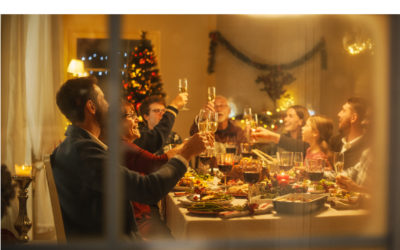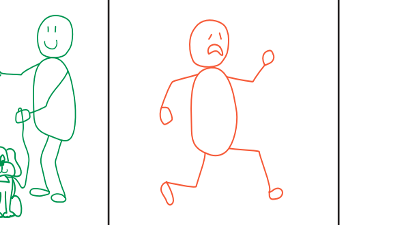Saying Yes to a Love Relationship? Part 3 of 3

Part 1 of this blog series looked at how essential it is to have healthy personal boundaries to meet a suitable partner for a romantic relationship. Part 2 explored why we need a healthy Yes and No as we begin to connect with someone more deeply and move into the early stages of a relationship. This third and final part of the series looks at the importance of maintaining a healthy sense of your individual self and boundaries, alongside the shared sense of “we” that comes with a long-term romantic relationship.
This blog will be more useful to you if you are someone who tends to desire a lot of closeness in romantic relationship. If you are someone who tends to desire a lot of space, it may not be as relevant to you personally, but may help you understand the needs of a partner better.
So let’s assume you’ve been together with your partner for quite a while now, maybe a good few months, or perhaps many years. The feeling of newness you had at first has given way to a sense of familiarity. You share a lot with each other, your time, your bodies, many of your experiences, mutual friends, plans, maybe a home, children and parenting.
When we’re sharing so much with another person, it is essential that we continuously recognize, and consciously feel, our sense of self as a separate being from our partner, with our own individual needs and desires, and our own individual Yes and No responses.
This may seem super obvious! But when we’re “in it”, it’s not always so easy for even the most self-aware of us to spot when we’re not doing this fully.
When we don’t maintain a clear sense of “I” – our individual self – and the boundary of where we end and our partner begins, we run the risk of getting lost in the “We” of the relationship. This can happen gradually, and in subtle (or sometimes not-so-subtle) ways.
Let’s say on Saturday mornings, you usually spend time together with another couple who are friends of yours. You’ve been doing this for a while, and share a sense that “this is what We do and how We like to spend our Saturday mornings”.
This is true for you both for a while, but then one Saturday, you feel a pull to do something else. The Yes that you previously felt has now changed to a Maybe, or perhaps even a No.
But you don’t communicate this to your partner, because you don’t want to break the warm and cosy sense of “We” that your Saturday routine gives you. Maybe part of this is that you don’t want to disappoint them. Perhaps you don’t even fully acknowledge to yourself that another part of you wants to do something different this week.
This continues week after week, and you still don’t admit – to your partner, or maybe even yourself! – that you no longer feel a full Yes to your Saturday morning arrangements. Your partner seems happy with things as they are, so you continue to go along with it…
And a feeling of dissatisfaction grows in you. You might start to feel grumpy on Saturdays, or a little resentful, or trapped. You might even find yourself creating an argument (consciously or unconsciously) one week just to get out of your plans.
Imagine you’re feeling this way about quite a few things you do together and not expressing it, and the effect this might have on you and your relationship. When we repeatedly override our true Yes and No feelings, we can even we lose touch knowing with what we really want and need.
And this makes us much more likely to just go along with what our partner wants, and acting in ways that support the meeting of their needs, without tending to our own, or perhaps not even acknowledging that we have certain needs. And so it becomes a cycle where we get more and more lost.
So, take space from your partner regularly to check in with yourself and ask yourself questions like:
– Do I really feel a full Yes/No to this? (e.g. to a small request, or a major thing like the relationship itself)
– Does part of me feel a Yes/No?
– What am I saying Yes/No to on autopilot or out of habit?
– What do I really want and need right now?
– Do I sometimes feel lost in my relationship? If so, what do I need to do to reconnect with myself?
– How can I maintain my connection with myself in everyday life?
Acknowledge that the need you have for a separate life outside of your relationship is a really healthy one. A good balance of space and togetherness helps us maintain a healthy connection with both ourselves and our partner and keeps us renewing ourselves and our relationship.
If you and your partner have different needs when it comes to space and togetherness, you might find it useful to know and understand your Attachment Style tendencies. This can give you a lot of insight and understanding into your feelings and behaviour when you’re relating romantically and can help you understand your partner better.
When we maintain a healthy sense of “I” – what I feel a Yes to, what I feel a No to, what I want and need – our choice to be in our relationship will be a conscious one. And anything we consciously choose in life is going to be infinitely more fulfilling than something we’re just blindly going along with! So check in with yourself, and if it’s a No, free yourself…and if it’s a Yes, enjoy!
More blogs
Relationships and Self-Care at Christmas and Holiday Time
The Christmas and holiday period can powerfully magnify both the joys and the challenges of life, and our relationships. The joys can be wonderful - getting together with those we love, celebration, fun, gifts, spiritual communion, a break from the usual day-to-day,...
Relationships and Our Nervous System
When it comes to health and wellbeing, the role our nervous system plays is finally making its way into the spotlight. As a relationships coach, I’m excited to see this happening, because of the central role it plays in our relationship with ourselves and with others,...
Life as a Relationships Coach
When I tell people that I’m a relationships coach, they often ask me what made me choose this as my work. The best answer I can give is that I see life as being made of relationships, because our relationship to ourselves, to others and to life, is ultimately what...



